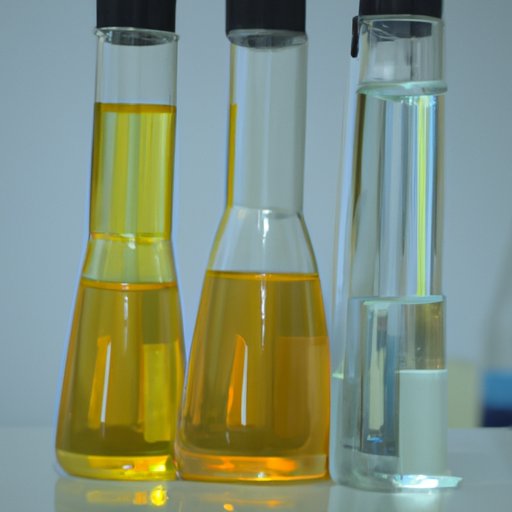Introduction
A solvent is a substance capable of dissolving another substance. Solvents are used in many scientific applications to facilitate chemical reactions, as well as for industrial or household purposes. In order to understand how solvents work, it is important to understand the chemistry behind them.
Types of Solvents
Solvents can be divided into two main categories: organic and inorganic. Organic solvents are typically derived from petroleum or natural gas, while inorganic solvents are derived from mineral sources. Furthermore, solvents can be divided into polar and non-polar solvents. Polar solvents contain molecules with a net dipole moment, meaning they have an unequal distribution of electrons. Non-polar solvents contain molecules with no net dipole moment, meaning they have an equal distribution of electrons.
How Solvents Work in Science-Based Experiments
Solvents play an important role in chemical reactions. The ability of a solvent to dissolve a substance can affect the rate at which the reaction takes place. For example, polar solvents are often better at dissolving ionic compounds than non-polar solvents. Additionally, solvents can also affect the properties of a solution, such as its viscosity or boiling point. It is important to choose the right solvent for a particular experiment in order to achieve the desired results.
Common Applications for Solvents
Solvents are used in a variety of industrial and household applications. Common industrial uses include cleaning and degreasing, paint stripping, and oil extraction. Solvents are also used in the production of pharmaceuticals, cosmetics, and food preservatives. In the home, solvents are used for cleaning, stain removal, and glue removal.
Safety and Hazards
Due to their volatile nature, solvents can pose a risk to human health if not handled properly. Prolonged exposure to certain solvents has been linked to a variety of health problems, including neurological damage, reproductive issues, and cancer. Therefore, it is important to take proper safety precautions when working with solvents, such as wearing protective gloves, clothing, and eyewear, and storing solvents in a cool, dry place away from open flames.
Conclusion
Solvents are useful in many scientific and industrial applications, but they can also pose a risk to human health if not handled properly. Understanding the types and properties of solvents is essential for ensuring safe handling and storage of these substances. With proper care and caution, solvents can be safely used to achieve the desired results in a variety of experiments.
(Note: Is this article not meeting your expectations? Do you have knowledge or insights to share? Unlock new opportunities and expand your reach by joining our authors team. Click Registration to join us and share your expertise with our readers.)
